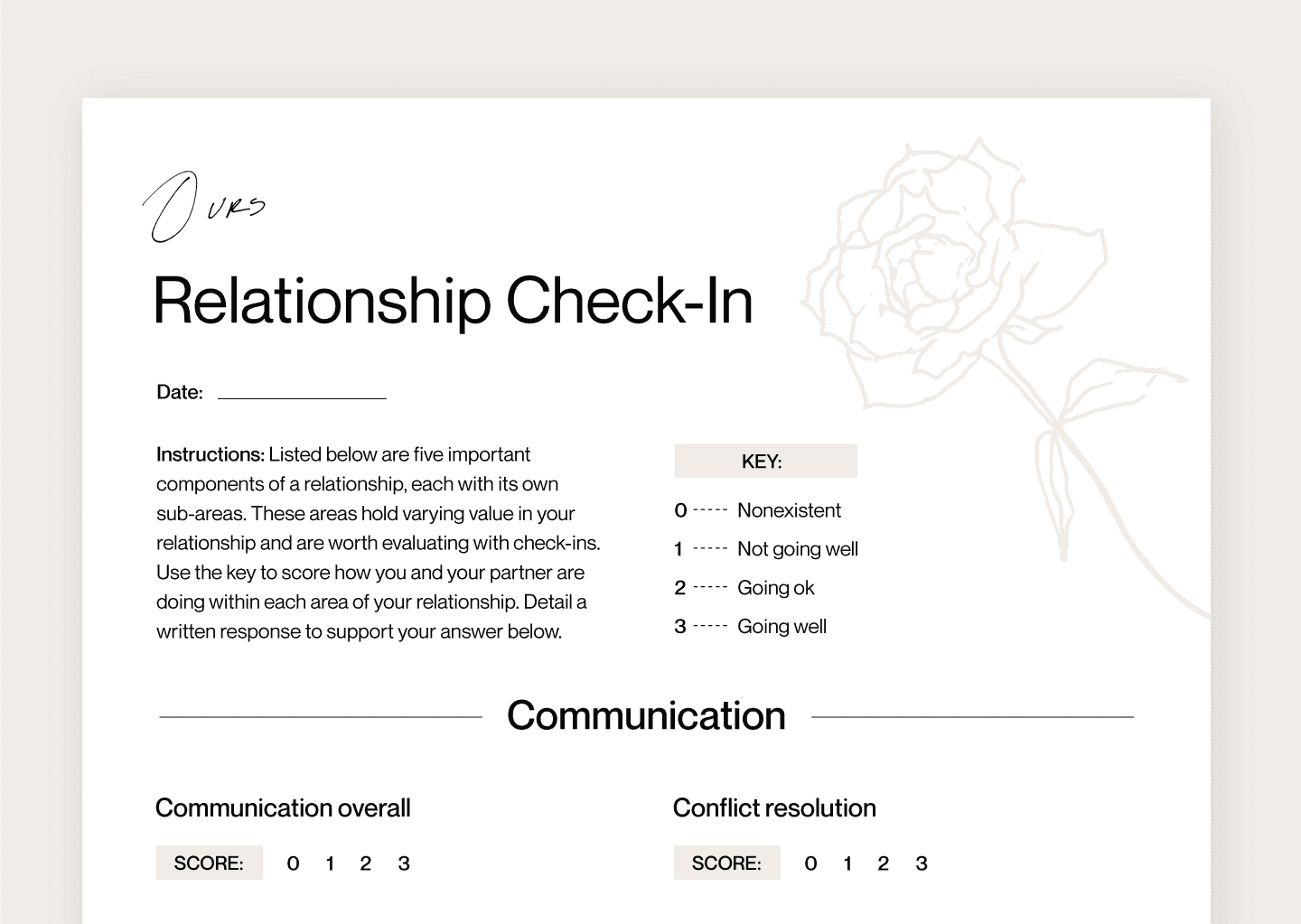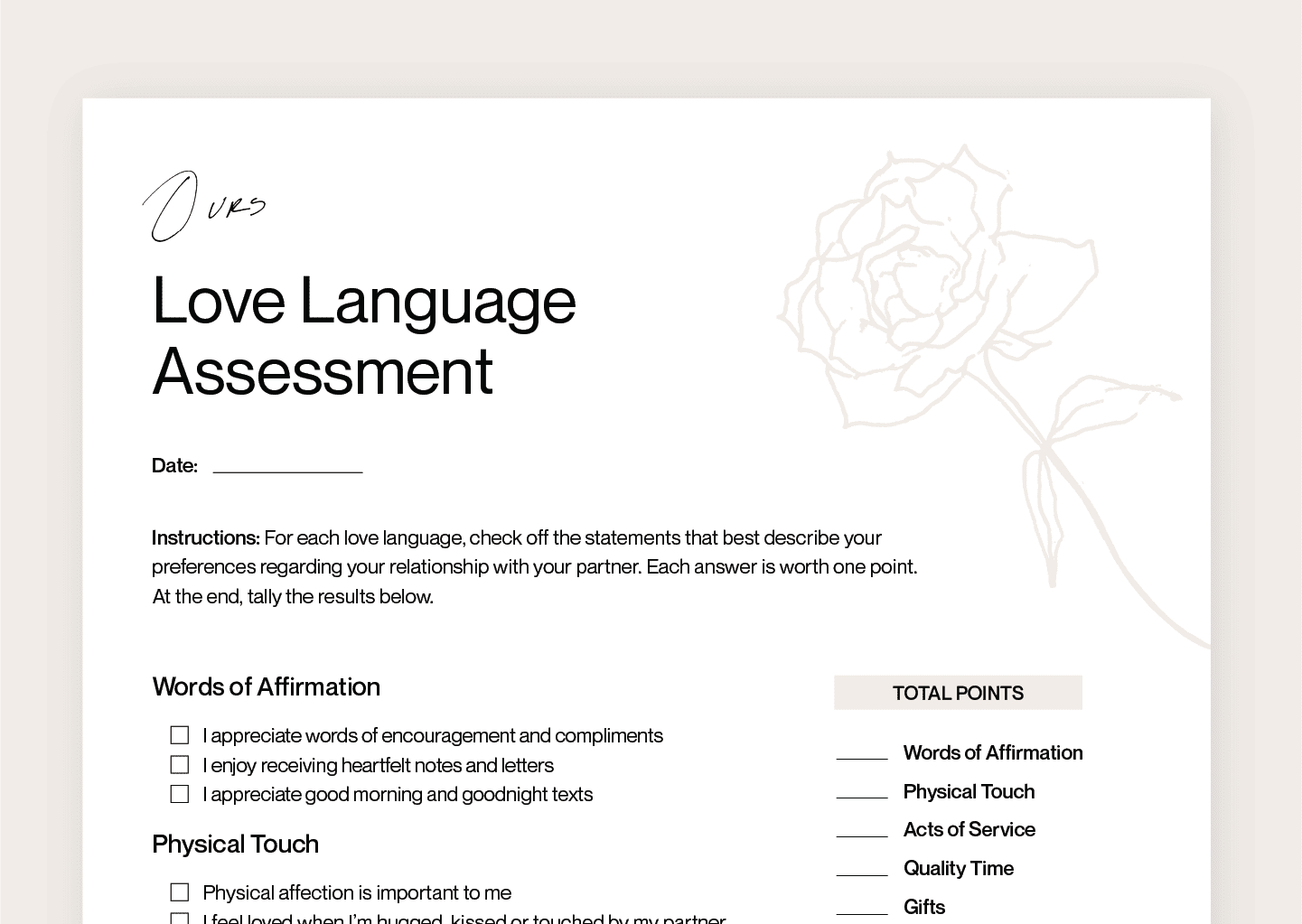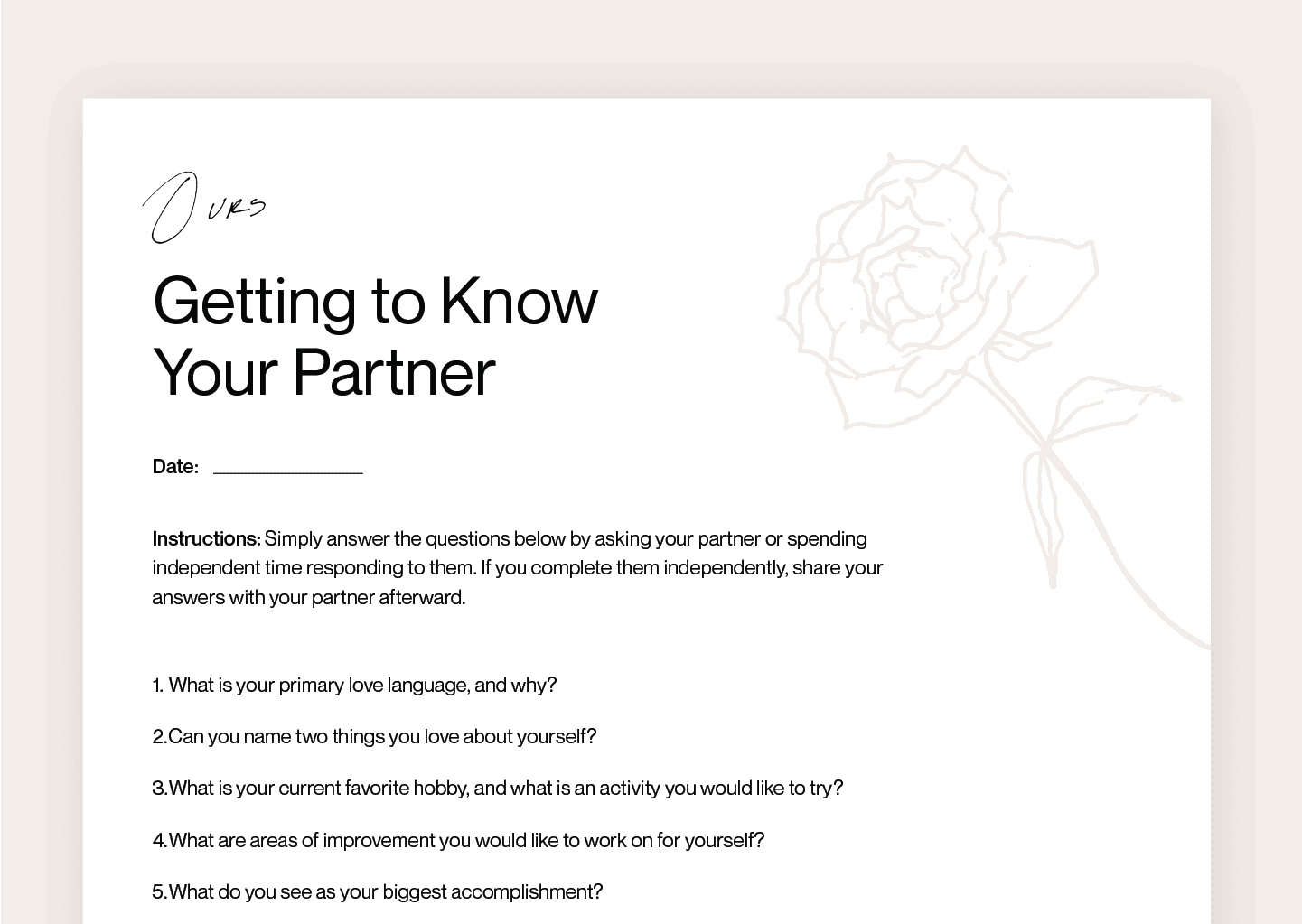Relationship wellness
Five couples therapy worksheets to strengthen your relationship

contents
A strong and healthy relationship starts with effective communication. That’s why we’ve created five couples therapy worksheets — your cheat sheets to foster a more open and honest partnership.
No matter where your relationship stands, it takes effort to nurture it. Numerous tools are available to help you and your partner improve your relationship, including couples therapy and couples therapy worksheets. Whether you use them individually or with couples therapy, worksheets enable you to healthily communicate your feelings, thoughts, and emotions that you can effectively share with your significant other.
In this article, we will explain and provide five couples therapy worksheets for you and your partner. These worksheets can help you learn more about each other, identify strengths and weaknesses, and be more intentional about your relationship.
1. Relationship Check-in

Whether your relationship has entered the five-year fizzle or you’re prepared for the next chapter in marriage, a check-in is a useful way to assess the current feelings of both partners.
Use the Relationship Check-in Worksheet to evaluate what may need improvement in your partnership and what is going well. Use the worksheet to facilitate an open conversation about areas of improvement and what you and your partner need to work on to better the relationship.
We also designed this worksheet to help you understand what to discuss during your therapy sessions.

2. Partner Appreciation
Pause from analyzing weaknesses and areas of improvement in your relationship, and instead, take a moment to appreciate your partner for who they are. Express some gratitude for your partner and what they bring to your relationship. One study shows that gratitude from a partner can increase romantic fulfillment and dedication, shielding them from the effects of daily stressors like finances.
Use the Partner Appreciation Worksheet to detail what you love about your partner, your favorite memories together, and their best attributes. Don’t forget to share your responses with your partner, whether privately or during your couples therapy session.

3. Love Language Assessment

Love languages are different ways you may express or receive love. Your love language may be the same or differ from your partner’s love language. Understanding your love languages can provide insight into what you need to feel loved and supported in your relationship, both for yourself and your partner.
The five love languages are:
- Words of affirmation
- Acts of service
- Physical touch
- Quality time
- Receiving or giving gifts
This Love Language Assessment will help you explore the various love languages to discover or solidify what your love language is.

4. Negative Cycle
Some couples can get caught in a “negative cycle” where they find themselves in a repetitive loop of negative actions, behaviors and thoughts. A negative cycle is usually triggered by a recurring action from one partner, prompting a corresponding reaction from the other.
Negative cycles can manifest in different ways. For example, Partner A may express a desire for more emotion in the relationship, which Partner B dismisses. This may cause Partner A to feel frustrated, as Partner B is not acknowledging their feelings.
Partner B may become defensive and use blame to deflect from the situation. These decisions only escalate the conflict and cause an emotional withdrawal between the partners. If the root of the issue isn’t solved, this situation may repeat itself, developing into a negative cycle.
Use this Negative Cycle Worksheet to identify these interactions, address the issue effectively, and escape from the negative pattern.

5. Getting to Know Your Partner

No matter how long you and your partner have been together, you can still learn things about each other. Use the worksheet below to answer questions like your bucket list items or greatest fears.
This worksheet provides an excellent opportunity for partners who’ve drifted apart and want to rekindle their relationship’s connection. It’s equally useful for newer couples in the process of strengthening their emotional connections.

How to be comfortable with couples therapy worksheets
If you’re new to using these types of worksheets, being vulnerable and honest with your partner can be nerve-wracking. Allocate dedicated time with your partner in your schedule to give these worksheets the attention and commitment your relationship deserves.
Be clear with your partner on what your expectations are with these worksheets, such as a level of honesty and nonjudgement. Create a safe space for your conversations that follow the completion of your worksheets. Turn off your phones and put away other distractions that can take away from this time of reflection. If you and your partner are currently in therapy, consider scheduling some time to complete a worksheet before or after your session.
You can also start by simply logging into the Ours app and completing “Rose Bud Thorns,” weekly reflections, and “Card Decks” to initiate conversations about more challenging topics with your partner.
Book your first session with Ours
Using worksheets can be incredibly helpful when paired with regular sessions with a professional therapist. Ours makes it easier than ever to begin your therapy journey with your partner through a telehealth platform designed to meet your relationship’s needs, providing seamless access to therapy tools and sessions.
Ready to book your first session and start investing in your relationship’s health?
Sign up today to get started.









